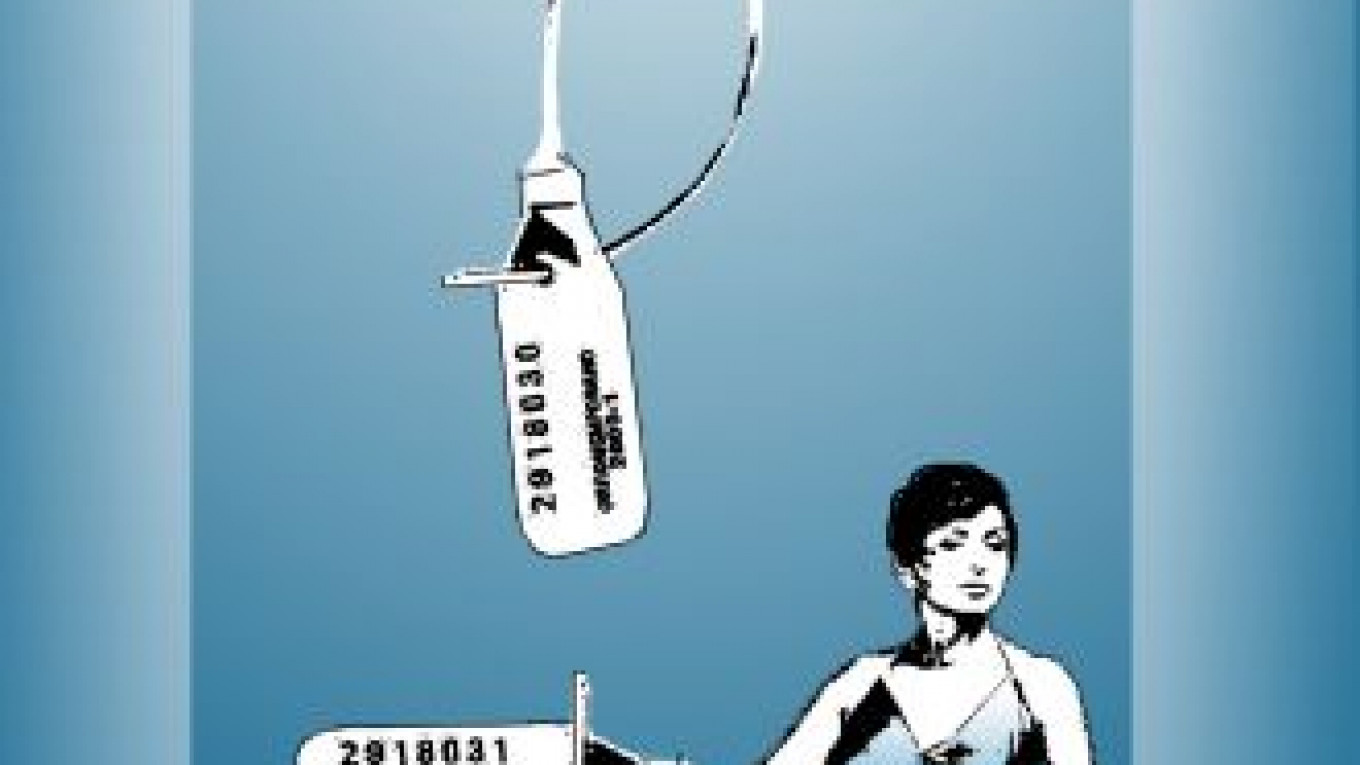The door was sealed and the locks changed. There was a piece of paper attached, partly on the door, partly on the frame, which had a light blue circular mark, a scrappily scribbled date and a signature. There was also something dark that looked as if it had oozed out of the door.
The seal was familiar from TV series and the odd, weirdly sealed doors in past offices. If I didn't know better, I'd have thought a terrible crime had been committed behind that familiar metal door with its puffed-up outer coat.
The art of the plomba, the great word for seal that also means tooth filling, is one that has evolved over centuries. It is said to go back to when the tsars sealed up awkward wives in monasteries. So glad that doesn't happen anymore.
Nevertheless, the plomba is everywhere if you look for it.
You can spot one close by the St. Petersburg Times office. The paper shares a building with a seed bank whose white-coated workers carefully steer past a sealed door as if worried that the giant triffid inside will one day break out.
A paper seal, like those official stamps, is a powerful thing, and the plomba gets a mention in law, where punishments are listed for breaking into official sealed buildings.
Most seals today rely on more modern technology. There are hundreds of ads for different types of plastic and metal plomby for locking up places, sealing up relatives, containers, lockers and ballot boxes.
And in turn, there is a device called a "plombirator," a shiny piece of metal that looks like a stapler that grew up on the wrong side of the tracks, that seals the seal.
One of the most common uses of seals is on meters for electricity, water and gas to stop the common man from getting access to the natural resources of Russia. That anyway seems to be the position of one anti-plomba site, which goes into minute detail on seals, how to break them and how to put them back on again without anyone noticing.
Some are easier than others: "This seal for us is just a gift, and we have nothing but gratitude for the person who invented it," the site writes.
They even have advice on how I could have gotten into my flat — it was sealed off after a crack in the wall opened up so much that you could stick your hand through it.
All you do is peel off the seal as carefully as you can, scan it and then — after a bit of photoshop work — print it out and put it back on again, they claim. Next time, next time.
P.S. Somehow after sending a plomba ad to our cartoonist, the picture came back of a woman with a seal on her leg. Couldn't get the seal off though.
A Message from The Moscow Times:
Dear readers,
We are facing unprecedented challenges. Russia's Prosecutor General's Office has designated The Moscow Times as an "undesirable" organization, criminalizing our work and putting our staff at risk of prosecution. This follows our earlier unjust labeling as a "foreign agent."
These actions are direct attempts to silence independent journalism in Russia. The authorities claim our work "discredits the decisions of the Russian leadership." We see things differently: we strive to provide accurate, unbiased reporting on Russia.
We, the journalists of The Moscow Times, refuse to be silenced. But to continue our work, we need your help.
Your support, no matter how small, makes a world of difference. If you can, please support us monthly starting from just $2. It's quick to set up, and every contribution makes a significant impact.
By supporting The Moscow Times, you're defending open, independent journalism in the face of repression. Thank you for standing with us.
Remind me later.






